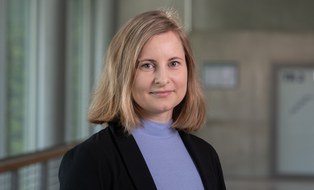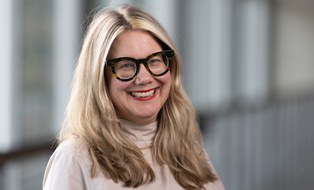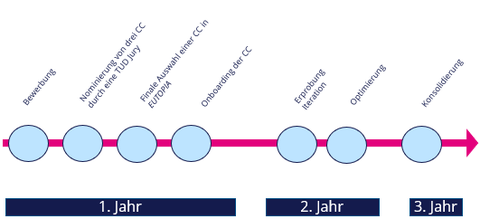Connected Communities
Inhaltsverzeichnis
Ein zentrales Ziel der europäischen Universitätsallianz EUTOPIA ist es, die Mitglieder der 10 Partneruniversitäten enger zu verbinden und drei Schlüsselbereiche des akademischen Lebens — Lernen, Lehren und Forschen — noch enger zu verflechten. In sogenannten „Connected Communities“ (CC) etablieren Hochschulpartner:innen von mindestens drei Universitäten aus dem EUTOPIA-Verbund über einen Zeitraum von drei Jahren ein campusübergreifendes thematisches Netzwerk. Die CC sind integrierte thematische Netze, in denen Lehrende, Forschende und Studierende zusammenarbeiten. Sie stehen im Einklang mit der Vision der EUTOPIA-Allianz in Bezug auf Offenheit und stellen drei Hauptziele in den Fokus:
- Lehre und Forschung verbinden: Es werden Lehr- und Forschungsaktivitäten miteinander verknüpft. Dabei werden Studierende bzw. Doktorand:innen oder Postdocs aktiv einbezogen.
- Wissenschaft und Gesellschaft verknüpfen: Die CCs richten ihr Lern- und Forschungsaktivitäten an gesellschaftlichen Herausforderungen aus und/oder beziehen zusätzlich außeruniversitäre Stakeholder ein.
- Inklusion ermöglichen: Die Connected Communities sind offen für ein breites Spektrum an Lernbedingungen und potenziellen Lernenden, denen Teilhabe an internationaler Vernetzung ermöglicht wird.
Auf Grundlage dieser Kriterien bestimmen die EUTOPIA-Partneruniversitäten Personen, die als Leads für die Leitung künftiger Connected Communities in Frage kommen. Leads sind ständige Mitglieder an einer der Allianzuniversitäten, die in Forschung und Lehre involviert sind und mit Partnern an anderen Universitäten der EUTOPIA-Allianz an ähnlichen Themen arbeiten möchten.
Förderung
Eine Connected Community wird mit insgesamt bis zu 10.000 Euro über einen Zeitraum von 3 Jahren gefördert. Unterstützung erhalten die Projekte zusätzlich durch lokale und internationale Facilitators, die die Zusammenarbeit mit auf den Weg bringen, bei Bedarf die Partnersuche unterstützen und die Connected Communities über den gesamten Zeitraum aktiv begleiten
Lifecycle einer Connected Community
Nach der Nominierung und Auswahl einer CC, beginnt die so genannte Inkubationsphase. In dieser gehen die ausgewählten Leads und Partner schrittweise von der gemeinsamen Nutzung von Ressourcen zur Durchführung von campusübergreifenden Lern- und Wissensaktivitäten über. Sie werden dabei vom zentralen EUTOPIA-Team und einem Local Facilitator unterstützt. Die Aktivitäten der CC werden über die Dauer von 3 Jahren erprobt, optimiert und schließlich für die Verstetigung vorbereitet.
Output und Mehrwert
Konkrete Mehrwerte der Teilnahme an und Output von CCs sind z. B.:
- Erhöhung der Wirksamkeit und Sichtbarkeit Ihres internationalen Engagements bzgl. Lehre, Lernen und Forschung
- maßgebliche Mitgestaltung aktueller Entwicklungen im Bereich der europäischen Hochschulbildung und Forschung
- Erweiterung des Angebots transnationaler Lern-Lehr-Formate für Studierende (BA, MA, PhD)
- Synergien und Komplementarität in der internationalen Lehre
- hohes Potenzial zur Anbahnung (inter)nationaler Ausschreibungen und Förderungen
- Anerkennung internationaler Leistungen von Mitarbeitenden und Studierenden
Connected Communities an der TUD
Die Technische Universität Dresden ist an folgenden Connected Communities als Lead beteiligt:
New Technologies for Social Inclusion: Prof. Dr. Ercan Altinsoy (TUD, Lead), Prof. Sophie Sakka (CY, Partner), Prof. Heidi Ottevare (VUB, Partner), Prof. Kerstin Persson (GU, Partner), Dr. Chiao-I Tseng (GU, Partner), Prof. Jolan Kegelaers (VUB, Partner), Prof. Martijn Van Heel (VUB, Partner), Prof. Bram Vanderborght (VUB, Partner), Prof. Dr. Nikos Deligiannis (VUB, Partner)
Im Fokus dieser CC steht die Verbesserung körperlicher Fähigkeiten durch haptische, akustische und visuelle Schnittstellen unter Einsatz von AR/VR, Robotik, maschinellem Lernen und KI-Technologie. Ziel dieser CC ist es, Studierende (Bachelor-, Master und Doktorand:innen) der Sonderpädagogik und aus dem Bereich Therapie in der Nutzung neuer assistiver Technologien auszubilden. Studierende sollen im Rahmen der CC dazu befähigt werden, ihre eigenen Forschungsprojekte durchzuführen, sich mit anderen EUTOPIA-Partner:innen auszutauschen und ihre Forschungsergebnisse zu präsentieren und zu veröffentlichen.
Als langfristiges Ziel strebt die CC die Einrichtung eines Masterstudiengangs „New Technologies for Social Inclusion” in Kooperation mit der CY Cergy Paris University an.
Jedes Jahr kann nur eine Connected Community pro Universität der EUTOPIA-Allianz gefördert werden. Die TUD unterstützt darüber hinaus in der aktuellen Laufzeit eine weitere CC mit zusätzlichen Ressourcen:
Narrativizing Mental Health: Prof. Dr. Cornelia Wächter (Lead, TUD), Prof. Dr. Carsten Junker (Lead, TUD) & Prof. Elisabeth Punzi (GU, Co-Lead), Prof. Flavio Gregori (Partner)
Die Connected Community „Narrativizing Mental Health“ bietet Bachelor- und Masterstudierenden sowie Doktorand:innen aus unterschiedlichen wissenschaftlichen Feldern die Möglichkeit, erzählerische Verhandlungen psychischer Gesundheit und Wohlbefindens zu erforschen. Dies bezieht sich sowohl auf Darstellungen persönlicher Erfahrungen, etwa Herausforderungen psychischer Gesundheit nach COVID, als auch auf fiktionale, literarische und künstlerische Darstellungen, z. B. Erzählungen über die Auswirkungen von Migration und struktureller Gewalt. In einem methodisch innovativen Ansatz werden historische, transnationale und dekoloniale Perspektiven auf psychische Gesundheit und Wohlbefinden kombiniert.
Studierende lernen im Zuge problemorientierten Lernens unterschiedliche Forschungsmethoden kennen und führen ihre eigenen Forschungsprojekte zum Themenschwerpunkt durch. Geplant ist zudem eine jährlich ausgerichtete internationale Studierendenkonferenz.
Die Technische Universität Dresden ist an folgenden Connected Communities als Partner beteiligt:
- Quantum Technologies Intitiative: Prof. Dmitry Kovrizhi (PLead, CY), Roderich Moessner (Director of Max Planck Institute, Prof. at the Faculty of Physics), Tomaž Prosen (UL) and Jožef Stefan (UL), Rok Žitko (UL), Rudolf A. Roemer (UW), Gavin Morley (UW), Mats Granath (UW)
- Environmental Humanities: Prof. Shaul Bassi (Lead, UPF), Jun.-Prof. Moritz Ingwersen (TUD, Partner), Prof. Orit Halpern (TUD, Partner), Dr. Jonathan Skinner (UW, Partner), Prof. Graeme Macdonald (UW, Partner), Ass.-Prof. Cristina Brito (NOVA, Partner), Ass.-Prof. Nina Vieira (NOVA, Partner)
Außerdem ist die TU Dresden an folgenden Connected Learning Communities aus der 1. Phase von Eutopia beteiligt:
- Managing Migration: Prof. Gregg Bucken-Knapp (GU, Lead), Prof. Dr. Thomas Köhler (TUD, Partner), Dr. Claudia Iov (UBB, Partner), Prof. Marie-Madeleine Bertucci (CY, Partner), Prof. Dr. Primož Pevcin (UL, Partner), Prof. Vicki Squire (UW, Partner)
- Urban Catastrophes: Vulnerability, Disasters, and Urban Resilience since the 19th Century: Prof. Pierre Purseigle (UW, Lead), Jun.-Prof. Maria Kondratjuk (TUD, Partner), Prof. Katarina Leppänen (GU, Partner), Dr. Mats Fridlund (GU, Partner), Prof. Wouter Ryckbosch (VUB, Partner), Prof. Nel de Muelenaere (VUB, Partner), Prof. Anne Winter (VUB, Partner), Ass.-Prof. Katarzyna Ruchel-Stockmans (VUB, Partner), Prof. Jelena Juvan (UL, Partner), Ass.-Prof. Matevž Juvančič (UL, Partner), Dr. Ion Horatiu Pavel (UBB, Partner), Daniel Woodward (UW, Partner)
Connected Communities in EUTOPIA
Informationen zu weiteren Connected Communities und ihren Tätigkeitsfeldern finden sie auf der offiziellen EUTOPIA-Website
Sie möchten selbst eine Connected Community gründen oder mehr über Beteiligung an bestehenden Connected Communities erfahren? Nehmen Sie mit uns Kontakt auf:
Kontakt
 © TUD | Michael Kretzschmar
© TUD | Michael Kretzschmar
EUTOPIA MORE Coordination Connected Communities
NameKristin Klein
ZILL
Eine verschlüsselte E-Mail über das SecureMail-Portal versenden (nur für TUD-externe Personen).
 © Sven Ellger
© Sven Ellger
EUTOPIA MORE Local Facilitator
NameKerstin Le Merdy
ZILL
Eine verschlüsselte E-Mail über das SecureMail-Portal versenden (nur für TUD-externe Personen).

